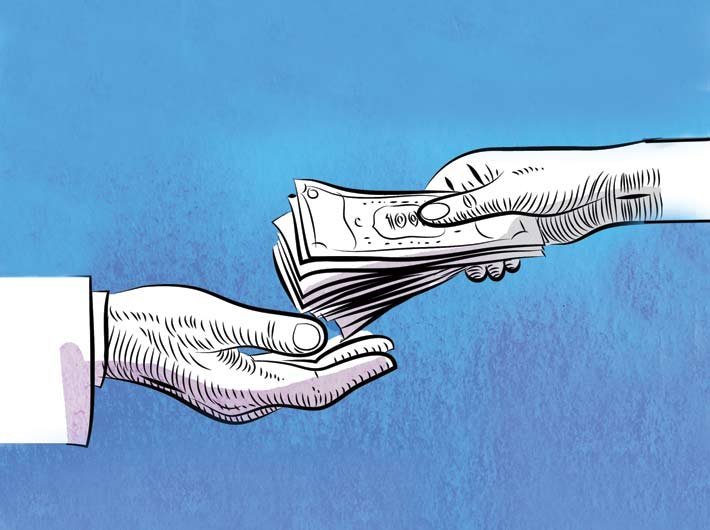Document bats for “invisible hand of the market”, says sectors that were liberalized have grown significantly faster than the rest
For more than three-fourths of known economic history, India has been the dominant financial power globally. During much of this dominance, the economy relied on the invisible hand of the market for wealth creation with the support of the hand of trust, notes the Economic Survey tabled in parliament Friday.
Specifically, the invisible hand of markets, as reflected in openness in economic transactions, was combined with the hand of trust by appealing to ethical and philosophical dimensions, said the Survey, which was presented by minister for finance and corporate affairs Nirmala Sitharaman.
The Survey shows that contemporary evidence following the liberalisation of the Indian economy supports the economic model advocated in our traditional thinking. The exponential rise in India’s GDP and GDP per capita post liberalisation coincides with wealth generation in the stock market. Similarly, the evidence across various sectors of the economy illustrates the enormous benefits that accrue from enabling the invisible hand of the market. Indeed, the Survey shows clearly that sectors that were liberalized grew significantly faster than those that remain closed. The events in the financial sector during 2011-13 and the consequences that followed from the same illustrate the second pillar – the need for the hand of trust to support the invisible hand.
The Survey posits that India’s aspiration to become a $5 trillion economy depends critically on strengthening the invisible hand of markets together with the hand of trust that can support markets. The invisible hand needs to be strengthened by promoting pro-business policies to (i) provide equal opportunities for new entrants, enable fair competition and ease doing business, (ii) eliminate policies that undermine markets through government intervention even where it is not necessary, (iii) enable trade for job creation, and (iv) efficiently scale up the banking sector to be proportionate to the size of the Indian economy. Introducing the idea of “trust as a public good that gets enhanced with greater use”, the Survey suggests that policies must empower transparency and effective enforcement using data and technology to enhance this public good.
As wealth creation happens by design, the overarching theme of Economic survey 2019-20 is wealth creation and the policy choices that enable the same. At its core, policies seek to maximize social welfare under a set of resource constraints. Resource constraints force policymakers to focus on efficiency, which more output to be produced from given resources such as land, human resources and capital or, the same output for less resource use.
The evidence since 1991 shows that enabling the invisible hand of markets, i.e., increasing economic openness, has a huge impact in enhancing wealth both in the aggregate and within sectors. Government intervention hurts more that it helps in the efficient functioning of markets. For instance, in the pharmaceutical industry, government regulated formulation prices increase more than unregulated formulations. Moreover, the supply of unregulated formulations is more than that of regulated formulations. Government interventions often lead to unintended consequences such as price increases, when compared to markets that are unregulated.
The ease of doing business has increased substantially in the last five years from reforms that provided greater economic freedom. India made a substantial leap forward in The World Bank’s Doing Business rankings from 142 in 2014 to 63 in 2019. The Doing Business 2020 report has recognised India as one of the ten economies that have improved the most.
Yet, the pace reforms in enabling ease of doing business need to be enhanced so that India can be ranked within the top 50 economies on this metric. India continues to trail in parameters such as Ease of Starting Business, Registering Property, Paying Taxes, and Enforcing Contracts. The Surveys identifies the most crucial issues plaguing India’s performance beyond the approach taken by the World Bank’s survey.
The analysis in this chapter reveals that key financial indicators such as net worth, net profit and return on assets of the privatised CPSEs (central public sector enterprises), on an average, have increased significantly in the post-privatisation period compared to the peer firms. This improved performance holds true for each CPSE taken individually as well.
Wealth creation in the economy must ultimately enhance the livelihood of the common person by providing him/her greater purchasing power to buy goods and services. A plate of nutritious food for the common man – a Thali – is a basic item that every person encounters every day. Therefore, there cannot be a better way to communicate whether or not economic policies make the common man better off that qualifying what he/she pays for a Thali every day. The survey presents evidence that a Thali- a nourishing plate of food has become more affordable for a common man now.


